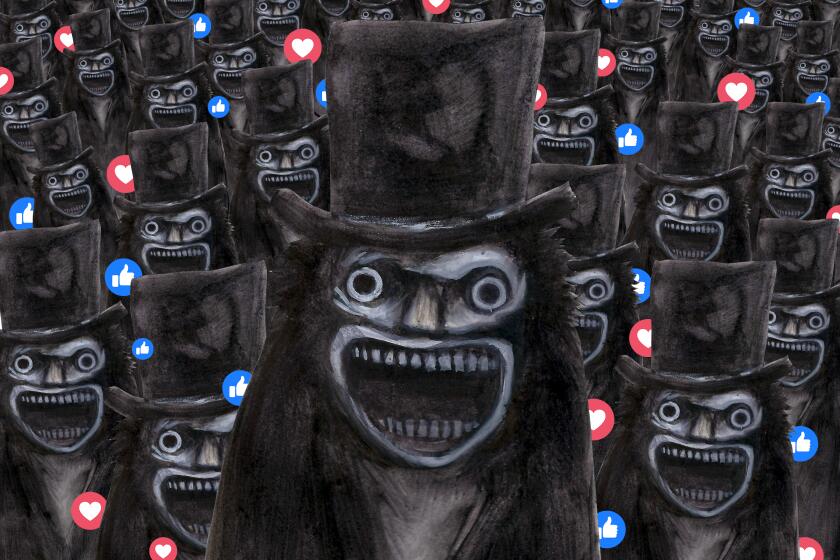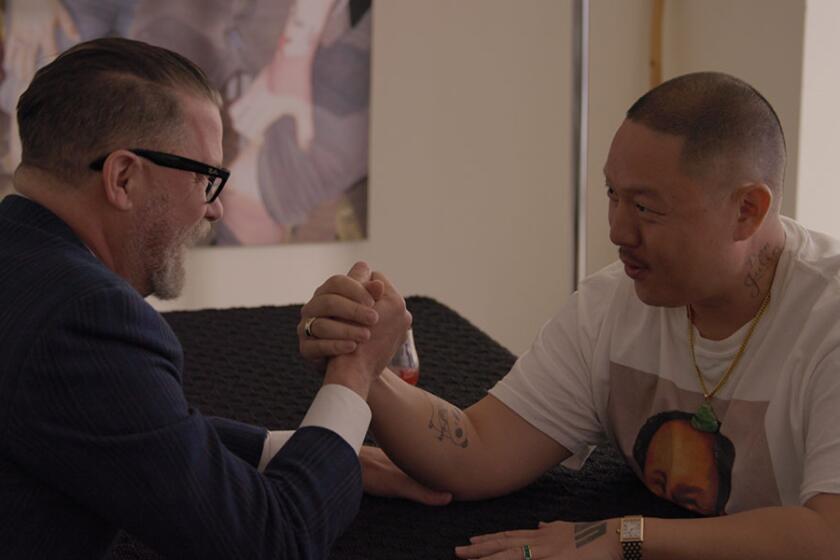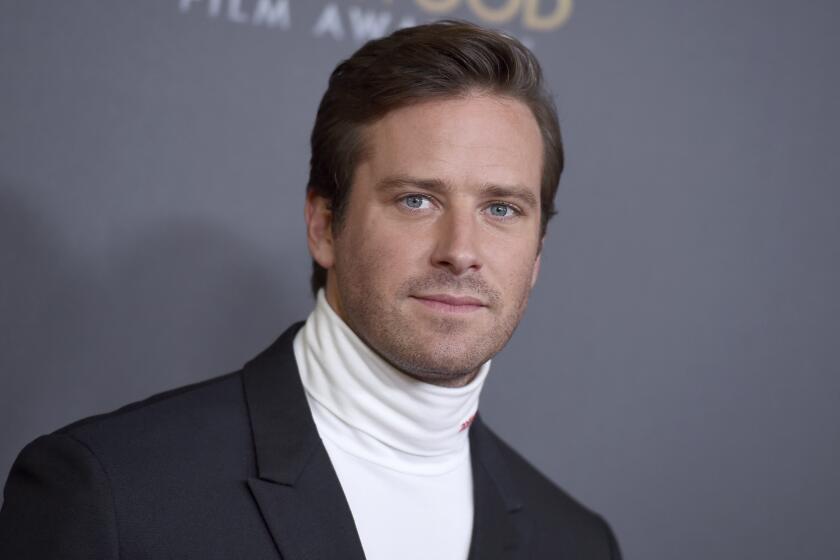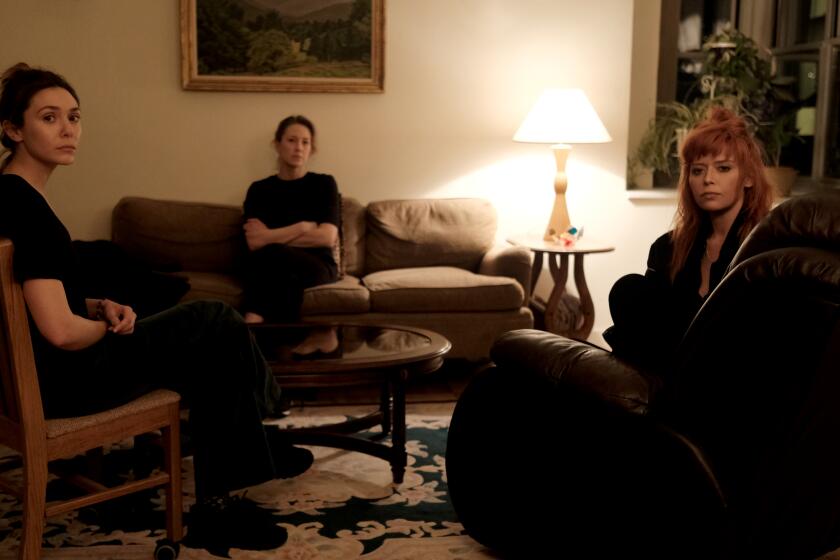Cannes 2014: ‘Grace of Monaco’ opening more awkward than regal
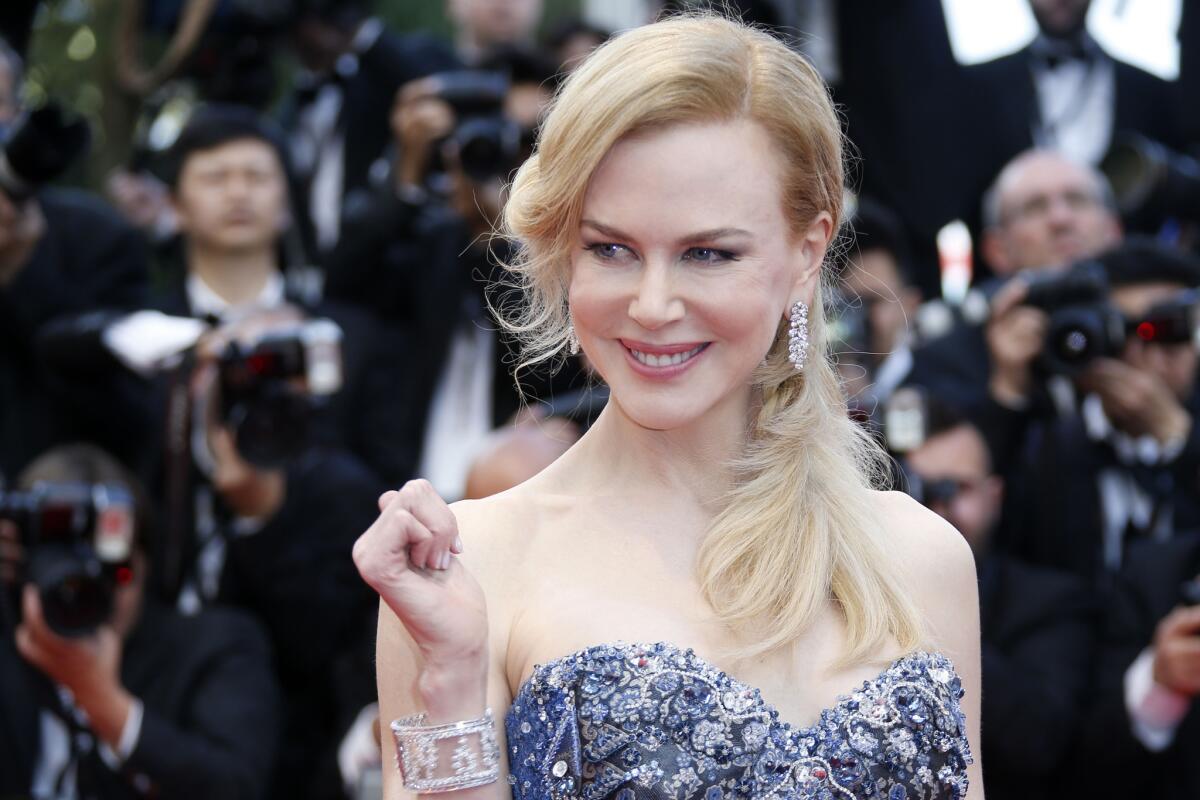
Cannes Film Festival opening nights are glitzy affairs, with movies like “The Great Gatsby,” “Up” and “Midnight in Paris” premiering to the requisite tuxedoed fanfare in recent years.
On the surface, the same seemed to apply to the kickoff of this year’s edition Wednesday night, as Nicole Kidman’s much-awaited, somewhat-delayed Grace Kelly biopic, “Grace of Monaco” had its world premiere at a splashy event just a few miles from where the real-life princess’ story took place.
Yet the evening had an added element not normally found at Cannes opening nights: awkwardness.
A strange mood hovered over the screening of “Monaco” — or one of its versions, anyway — as the movie premiered to a muted response.
The glam trappings were, of course, everywhere. At the elaborate red-carpet ritual, announcers called out French and American celebrities as hundreds of professional photographers snapped photos and many more amateur ones craned for looks from the surrounding streets.
Festival director Thierry Fremaux greeted the cast and filmmakers and posed for pictures with them, as he does on Cannes red carpets. And an elegant Kidman stood atop the steps of the Palais de Festivals, bedecked in a manner that evoked Kelly herself.
Inside the theater, French actor Lambert Wilson took the stage to greet Kidman and costar Tim Roth, who plays Prince Rainier, as “Princess Nicole and “Prince Tim,” even breaking with Cannes politesse to enter the crowd and spontaneously dance with Kidman at her seat. The event was given added heft when the jury — led by Jane Campion and featuring heavyweights such as Nicolas Winding Refn, Gael Garcia Bernal and Sofia Coppola — came out to the stage in the time-honored opening-night Cannes custom, with non-jury member Alfonso Cuaron then emerging and officially declaring the festival open.
But hanging over the screening that followed was the battle between U.S distributor the Weinstein Co. and the French filmmakers, including director Olivier Dahan and producer Pierre-Ange Le Pogam. Harvey Weinstein had last summer rejected a cut submitted by the French filmmakers and instead edited his own version with a different tone and feel, even pulling off the rare move of negotiating for the right to release his cut of the movie in the U.S.
Weinstein wasn’t at the screening Wednesday — and that was just the beginning of the strangeness.
It was the version the French preferred that screened Wednesday. And it didn’t go especially smoothly. The movie plays as melodramatically as billed, at times going for the overwrought close-up or schmaltzy music to emphasize what’s at stake. Some of its transitions also suggested a movie that had been chopped up and reassembled several times. (The movie, incidentally, focuses only somewhat on Kelly and Rainier’s relationship, or their respective inner lives, instead choosing to center much of the story on their reactions to a standoff between Rainier and French leader Charles de Gaulle over Monagasque sovereignty.)
More pointedly, Cannes opening-night films tend to generate standing ovations of at least five or six minutes, but the clapping after this one was mostly polite, and it was over after a brief two. A press screening earlier in the day also generated only modest excitement at best.
(Those who’ve seen it say that Weinstein’s version is lighter and more Capraesque, though whether we will ever get the chance to see it is another matter. More on that in a moment.)
The events at the start of the world’s most prestigious film festival were the most public example yet of a long-simmering battle. Weinstein and the French filmmakers have been trading salvos for months, with Weinstein’s edits prompting Dahan to go on a tirade in the French press in the fall and the French filmmakers retaliating by successfully submitting it as the Cannes opening-night film without consulting Weinstein in January.
The proceedings Wednesday served to offer an important reminder: Though it may be the most public form of a film’s unveiling, the hoopla of a red carpet can sometimes serve to conceal the turbulence within.
In Dahan’s particular case, concealment may not have been an issue, though: His expression and body language suggested a filmmaker uncomfortable about the state of affairs; he barely smiled and seemed to have a perfunctory air about him.
Weinstein, meanwhile, did not even make the trip to opening night. That offered the rare prospect of Kidman, with whom Weinstein often collaborates, basking in the attention on one of the most important nights of the film year without him.
Making matters more surreal, a representative of the U.S. film mogul issued a statement earlier in the day seeking to explain his absence.
“My wife Georgina and I have been in Jordan visiting two Syrian refugee camps, Al Zaatri yesterday and Azraq today,” Weinstein said in the statement. “This was a long planned trip with the UNHCR and our friend Neil Gaimon [sic] to bring attention to the plight of refugees who have been forced to flee Syria and the incredible work of UNHCR.” He concluded by offering an obligatory thank you to the producers and financiers, including Dahan and Le Pogam.
The audience reaction to the French version of the film, which opens across Europe in the coming weeks, creates a tantalizing number of possibilities for Weinstein. He could, of course, dump or withhold the French version of “Grace of Monaco,” saying that he was delivered a bad film and in turn salvaging some pride, if not dollars.
But Weinstein is spending as much as $4 million on the U.S. rights, making an outright dump hard to imagine. And, in a way, the tepid response could give him an opening to say he has the solution to what ails the film and offer a chance for him to vindicate himself in the battle with Dahan when he releases his own version.
Of course, that’s a risky bet: If Weinstein does do that and it doesn’t work, he could end up in an even worse position, having made a point of saying he had the better alternative only for the marketplace to rebut the claim. The opening-night awkwardness is over, but the drama may yet linger.
More to Read
Only good movies
Get the Indie Focus newsletter, Mark Olsen's weekly guide to the world of cinema.
You may occasionally receive promotional content from the Los Angeles Times.






